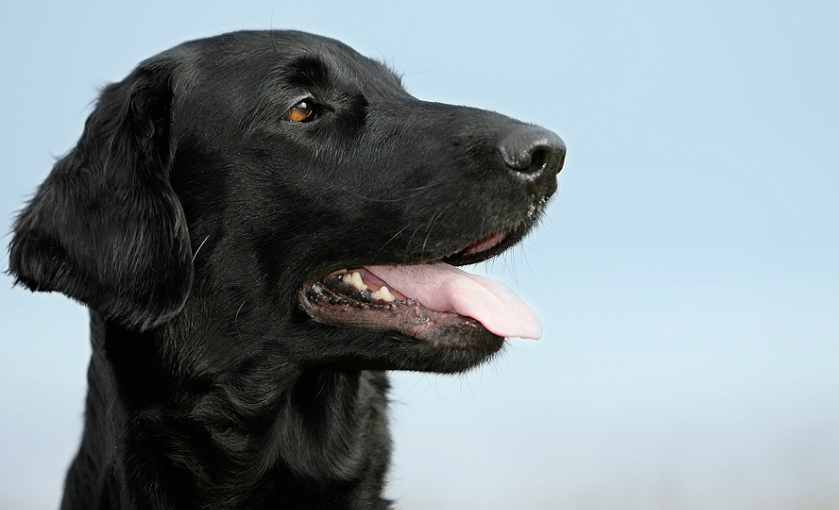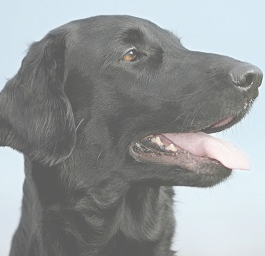Canine Cancer

AKC Canine Health Foundation Canine Cancer Research
Since 1995, CHF and its donors have funded over $18.1 million in canine cancer research. These 271 research grants have helped scientists study cancer at the cellular level, providing breakthroughs that allow veterinarians to diagnose cancer earlier and treat it more effectively. CHF-funded research also has a One Health impact, extending beyond dogs with an application to human cancer diagnosis and treatment.
Canine cancer research is a major concern of dog owners and veterinary professionals. Typically, about one quarter of CHF’s grant funding concerns various types of canine cancers.
View our Cancer Research Portfolio
Resources
Canine Cancer Articles
Promising Research on the Use of CBD to Treat Canine Cancer March 22, 2021
A CHF-funded study documents the anti-cancer effects of CBD alone and in combination with chemotherapy drugs.
Liquid Biopsy for Canine Histiocytic Sarcoma and Lymphoma March 16, 2021
Liquid biopsy through measurement of circulating tumor DNA in a blood sample shows promise in diagnosing canine cancers such as histiocytic sarcoma and multicentric lymphoma.
A One Health Approach to Beating Cancer August 27, 2020
Recent discoveries by AKC Canine Health Foundation funded researchers demonstrate the power of a One Health approach in fighting cancer, a devastating disease found in humans and dogs.
A New Technology to Assess Tumor Margins During Surgery August 17, 2020
CHF-funded investigators are exploring a new technology that could provide accurate surgical margin information in real-time and right in the operating room
AKC Canine Health Foundation Marks Pet Cancer Awareness Month with Over $902,000 in New Canine Cancer Research Grants Awarded This Year May 1, 2020
The AKC Canine Health Foundation marks Pet Cancer Awareness Month this May with more than $902,000 awarded for 12 new canine cancer research grants this year.
Reevaluating the Nature of Hemangiosarcoma April 24, 2015
Hemangiosarcoma is a type of cancer that is quite common in dogs. It is aggressive and deadly; more than 50% of dogs with hemangiosarcoma die within four to six months of diagnosis. But thanks to you, two exciting, new studies from researchers at the University of Minnesota, Twin Cities have begun to shed new light on where these tumors come from and how they grow.
Canine Hemangiosarcoma Research October 7, 2014
Learn more about how your donation can help find better treatments for canine hemangiosarcoma and increase survival rates for our beloved dogs.
Leonberger Loses Fight with Hemangiosarcoma But Owners Battle On April 1, 2012
One morning, Einstein, an 8 ½ year old Leonberger, failed to make his way upstairs in anticipation for his morning walk. The unfortunately diagnosis was hemangiosarcoma. Unlike some of the other canine sarcomas, hemangiosarcomas are very invasive, fast-growing tumors that often migrate to the spleen, heart, liver, lungs, kidneys, muscle, lymph nodes or skin.
Success in Translation - A New Clinical Trial for Canine Hemangiosarcoma September 13, 2011
Researchers at the University of Minnesota anticipate a new clinical trial for canine hemangiosarcoma will open for enrollment in the fall of 2011.
Resources Available for Download
Webinars
Cancer Attributable to Infection?
Original air date: June 8, 2022
Speaker: Edward B. Breitschwerdt, DVM, DACVIM
May 2022 Canine Cancer Webinar Series
Available on a pay per view basis through the AKC Canine College.
Predicting Lymphoma in Dogs, Presented by Dr. Daniel Promislow
Luteinizing Hormone Receptor Activation in Lymphoma and Hemangiosarcoma, Presented by Dr. Michelle Kutzler
Toward Curative Outcomes in Canine Hemangiosarcoma, Presented by Dr. Chand Khanna
LIVE Panel Q&A Session, Presented by Drs. Promislow, Kutzler, and Khanna
A Novel Non-Surgical Option to Preserve Limbs in Canine Osteosarcoma
Original air date: May 25, 2021
Speaker: Joanne Tuohy, DVM, PhD, DACVS
Podcasts
Tracie Hotchner Pets podcast spoke with CHF Board Chairman, Dr. Charles Garvin, about CHF-funded grants studying innovative new ways to detect and treat cancer.
The Dog Cancer Answers podcast spoke with AKC Chief Veterinary Officer Dr. Jerry Klein about How to Choose a Dog Breeder. Listen for ways to increase the odds of having a healthy puppy, including the importance of AKC Canine Health Foundation funded research.
How You Can Help
Your support means more studies exploring improved diagnostics and new treatment strategies for canine cancer.
Help Future Generations of Dogs
Participate in canine health research by providing samples or by enrolling in a clinical trial. Samples are needed from healthy dogs and dogs affected by specific diseases.







